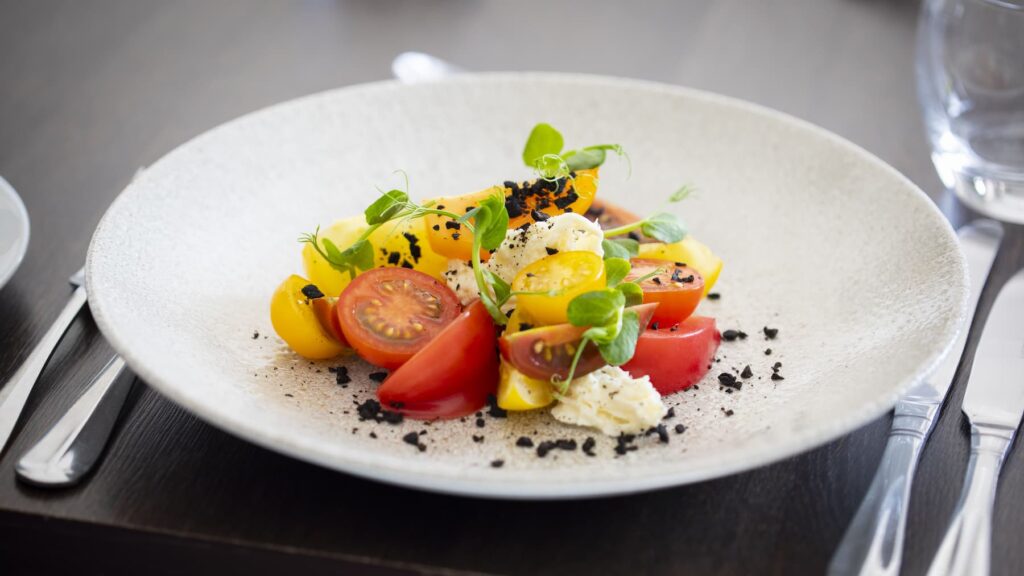
How to choose a menu for your next event
Sam Morgan, our Group Executive Chef, is currently part of a ground-breaking culinary apprenticeship programme in collaboration with the esteemed Michelin starred chef and Masterchef judge chef Marcus Wareing. In this blog, Chef Sam explains how to create a menu that’s perfect for your audience:
We are a nation of foodies and food is the most commented on aspect of an event; 45% of all event feedback is now based on food and beverage.* Food is usually the biggest financial outlay of your event so you need to get it right. Here’s my guide to help you to choose the best menu for your next event:
Take yourself out of the picture: Try to not let your own personal food preferences influence your choices. It could be easy to simply chose the food that you like, rather than what your audience will like. This is where the chef’s knowledge and experience can really help. They can help guide you to the best sellers, the dishes that will be liked by the majority of people.
Know your audience: what’s their demographic and age range? What do they like and dislike? What insights can you share with your chef so they can understand your audience?
Consider the occasion: How important is the food and how does it fit into your event? Would you be prepared to cut back on the entertainment budget – by having a DJ rather than a live band for example – so you can spend more on food? What’s the vibe that you’d like to create? Is it a more laid-back affair where you are encouraging your guests to dance? If so, then street food or a BBQ may be suitable options. Whilst a formal awards dinner may need a more structured three course dinner that will segue into the award presentation.
Consider the theme: What’s the theme of the conference or event and how can the food compliment and emphasise the messages you are sending? For example, a creative audience or an event designed to encourage creative thinking should also have a creative menu. And it stands to reason that an event about sustainability should have a seasonal, sustainably sourced menu with lots of plant based and plant first options. We can now provide a specific carbon measurement for your event should you wish or see that as a high priority when booking.
Collaborate with and trust your chef: Try not to bring fixed, preconceived food choices to the table. Do bring your ideas and thoughts, but be prepared to be challenged – in fact, ask your venue chef to challenge you! Your chef is the professional; they know what people like, what works and what doesn’t. They will know what the most popular dishes are – and they may not be the ones you thought. I actively encourage our chefs to be a little bit more daring and challenge our customers. For example, if we have a customer who books regular private dining events with us, we then build trust and a more rounded and thorough understanding of their audience. Our chefs can then be more adventurous and can create an amazing menu that delivers a fantastic experience perfectly tailored to the audience.
Consider the timing of the event and what’s seasonal: Don’t insist on tomato soup at your Christmas meal simply because you think it’s a safe option that everyone likes. Your chef’s knowledge can really help guide you to a seasonal option, that everyone will love.
Remove the menus: If you are enabling your chef to be more adventurous then you may want to consider removing the menu from tables. Guests and delegates can have preconceived ideas of what they like and dislike, so keeping the food as a surprise will result in a delighted audience.
In summary, know your audience, know your event and hone down what you need to achieve. Then collaborate with your venue, trust your chef to deliver the goods, because that’s exactly what they have been trained to do.
Speak to our sales team about your next private dining or event: enquiries@thevenuescollection.co.uk
*Source: Big Food Survey 2021, Lime Venue Portfolio
Go back to other articles

